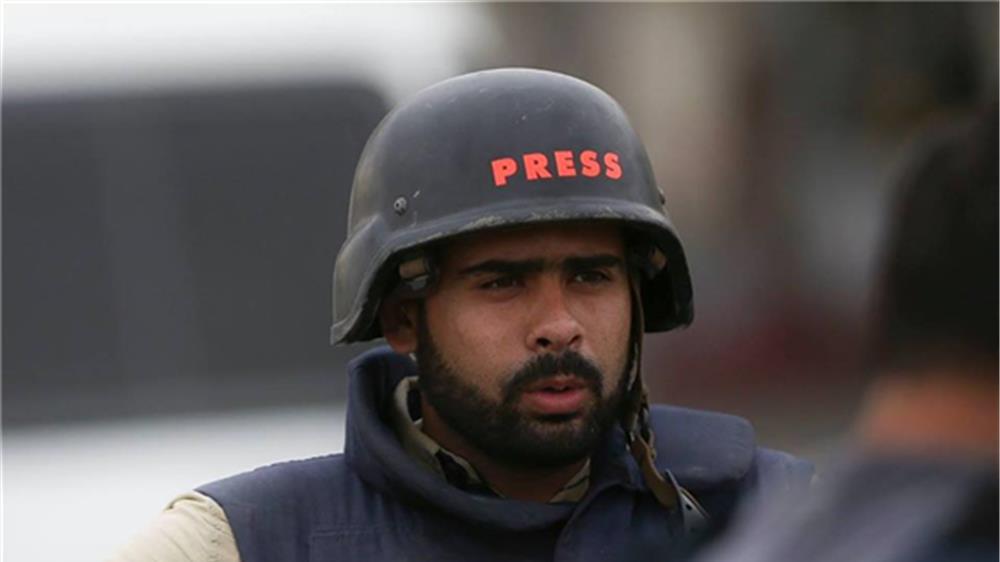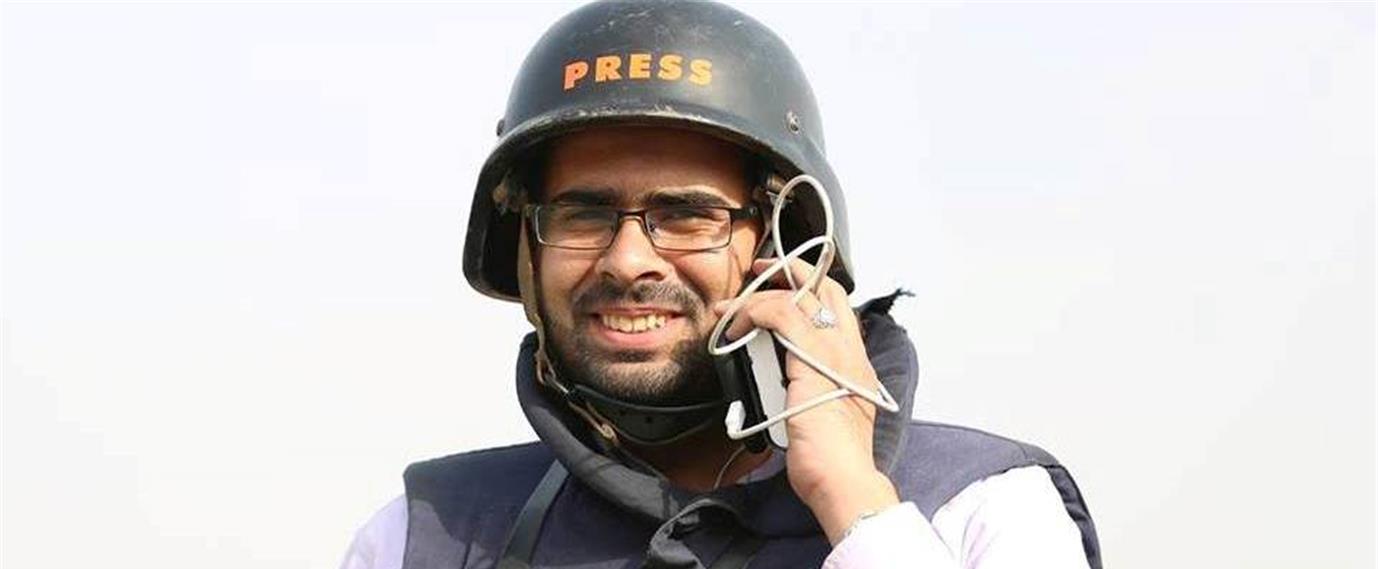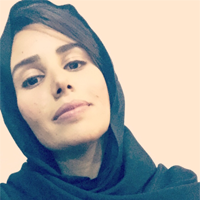في فلسطين المحتلّة، لا فرق بين خوف الأجهزة الأمنية من الكلمة أو من الصورة؛ ففي الضفة الغربية وفي قطاع غزة، يتعرض صحفيو فلسطين إلى شتى أنواع الانتهاكات والاعتقالات من قبل الأجهزة الأمنية الفلسطينية، تحت ذرائع واهية، من بينها تهمة الصحفي جهاد بركات مؤخرا "التصوير في أماكن مشبوهة".
يبدو أن الكاميرا صارت تهمة تودي برفيقها إلى السجن وفق اعتبارات سياسية لا قانونية؛ السّادس من يوليو/تموز الجاري كان شاهدا على انتهاك جديد من قبل السلطة ضد قوانين حقوق الإنسان وحرية الرأي والتعبير، حيث اعتُقل الصحفي جهاد بركات الذي يعمل مراسلًا لـ"فلسطين اليوم" على حاجز "عناب" الاحتلالي شرق مدينة طولكرم، أثناء تصويره موكب رئيس حكومة الوفاق الوطني رامي الحمد الله لدى تفتيشه على حاجز إسرائيلي.

وذكرت الفضائية على موقعها الإلكتروني أن الاعتقال تم عند حاجز "عناب" أثناء أدائه مهامه الصحفية، إذ أقدم عناصر أمن السلطة على توقيفه واعتقاله ثم اقتياده إلى جهة مجهولة.
وبحسب المادة (19) من الإعلان العالمي لحقوق الإنسان "لكلِّ شخص حقُّ التمتع بحرية الرأي والتعبير، ويشمل هذا الحق حرِّيته في اعتناق الآراء دون مضايقة، وفي التماس الأنباء والأفكار وتلقِّيها ونقلها إلى الآخرين، بأيَّة وسيلة ودونما اعتبار للحدود". ما يعني أن الحكومة الفلسطينية تستمر في انتهاكاتها المعلنة ضد القوانين الدولية.
إنها ليست المرّة الأولى التي يخضع فيها موكب رئيس الوزراء للتفتيش على حواجز الاحتلال، وليست المرّة الأولى التي يتم توثيق الحدث عبر الكاميرات، ففي الرّابع عشر من يناير/كانون الأول 2014، تمّ تصوير الحمد الله وهو محتجز من قبل جنود الاحتلال والمستوطنين الذين اعترضوا الموكب مرّتين خلال 12 ساعة قرب حاجز "زعترا" المقام على أراضي نابلس، وسُمِحَ للصحفيين حينها بتصوير المشادة التي دارت بين الطرفين، كما يظهر في الفيديو.
رقابة ذاتية وابتعاد عن المهنية
إزاء الموضوع، يقول الصحفي أحمد يوسف إن الأمر صار واضحا لدى السلطة الفلسطينية التي تدرك أن اعتقالها للصحفيين أمر يسيء لها أمام الدول المانحة والجهات الناشطة بمجال حقوق الإنسان. مع ذلك، فهي تواصل اعتقالاتها بهدف خلق رقابة ذاتية عند الصحفي.. "السلطة دائما ما تستطيع تبرير انتهاكاتها وتخرج منها بلجان تحقيق أو غيره، إلى جانب إدراكها بأنها خوّفت بعض الصحفيين وجعلتهم يحسبون حساب التهمة التي يمكن أن تطالهم يوما ما".
ويتابع "لذلك نحن نرى أن لا أحد بات يكتب عن المواضيع الكبيرة و"الشخصيات المهمة"؛ إذ صار كل صحفي يضع لنفسه خطوطا حمراء لا يحاول تجاوزها، دون أن يأتي أحد بالقول هذا مسموح أو ممنوع".
ويعتبر أن الانتهاكات المتلاحقة تضعف العمل الصحفي ولا تؤثر على المهنية فحسب، بمعنى أنها تجعل المواد الصحفية فارغة من أي مضمون في حالات كثيرة. وقد توضع عناوين كبيرة ومحتوى ضعيف، وبالتالي تتوقف الصحافة عن تقديم الدور المطلوب منها، ما يفقدها ثقة الناس، كما يحدث الآن بالضبط.. "فالصحافة عندنا فقدت ثقة الناس، ووضعت خطوطًا حمراء يمنع تجاوزها، ولذلك يتواصل الفساد والتطبيع يتكرّر، والاعتقال السياسي لا يتوقف" حسب قوله.
يشهد العام الجاري 2017 ارتفاعا لافتا في انتهاكات الحريّات الإعلامية في فلسطين المحتلّة، إذ سجّل في شهر يونيو/حزيران 41 انتهاكا من قبل جهات فلسطينية، و10 انتهاكات فقط من قبل الاحتلال الإسرائيلي بحسب المركز الفلسطيني للتنمية والحريّات الإعلامية.
ماذا برّرت الحكومة؟
في تعقيب سريع، أعلنت حكومة الوفاق على لسان الناطق باسمها طارق رشماوي أن الأجهزة الأمنية "أوقفت شابين - أحدهما الصحفي بركات دون أن تسميه- نتيجة تجاوزهما القانون وقيامهما بتصوير موكب رئيس الوزراء الفلسطيني بالقرب من مدينة طولكرم بشكل غير قانوني". ونفى رشماوي وجود أي حاجز لقوات الاحتلال أثناء عملية التصوير.
وأضاف أن "الأجهزة الأمنية كانت ترصد تحركاتهم منذ مدة طويلة وسيتم التحقيق معهم وإحالتهم إلى جهات الاختصاص"، مؤكداً احترام الحكومة لحرية الرأي والتعبير.
وقد وصف إياد حمد، رئيس لجنة المصوّرين بنقابة الصحفيين الفلسطينيين بيان الحكومة بـ"المتخبط والمتناقض"، حيث ذكر أنه تم اعتقال "شابين" وفي الحقيقة أنه تم اعتقال صحفي واحد وهو جهاد بركات، وبالنسبة إلى تحركاته التي قيل إنها رُصِدت فقد كانت على حاجز احتلالي يمر عبره المواطنون بشكل يومي، وكان يرتدي سترة الصحافة، أي بشكل معلن ويمارس عمله وكان بإمكان الجهة الخاطفة أن تسأله عن بطاقته لكنها لم تفعل.
ويلفت أن تجاوزات السلطة في اعتقال الصحفيين وممارسة الانتهاكات ضدهم تهدف إلى تخريب مؤسسات وطنية ضمنها نقابة الصحفيين، وتحول دون وصول المعلومة وإلى إعاقة عمل الصحفيين واتخاذ إجراءات ضد حرية الرأي والتعبير وتؤدي لتراجع دور الصحافة وفرض الرقيب الذاتي على عملها.
وكانت النقابة قد أصدرت بيانا استنكرت فيه اعتقال بركات، لكن صحفيين قاطعوه وطالبوا بعدم نشره، أبرزهم الصحفية ميرفت صادق التي دعت عبر صفحتها الشخصية في فيسبوك "احتجاجا على كل الخذلان لزميلنا جهاد بركات وللجسم الصحفي الفلسطيني ولحقنا في الحصول على دفاع نقابي قوي في الوقت المناسب .. نمتنع عن نشر بيان نقابة الصحفيين الذين صدر بعد 24 ساعة على اعتقال زميلنا وتغييبه وعدم وضوح مصيره".
وسخر الناشط علاء أبو دياب من الإجراء، حيث علق على صفحته في "فيسبوك": "الصحفي صوّر جيش الاحتلال وهو بوقف رئيس وزرائنا وبفتشه"، المهم سلطتنا الموقرة، قررت انها ترد هيبتها بأنها تعتقل جنود الاحتلال الذين تجرؤوا على ذلك، وتمسح الحاجز عن الوجود".
حقوقيون قلقون من تبعات الانتهاكات
وقد أبدت الهيئة المستقلة لحقوق الإنسان على لسان الباحث والكاتب مصطفى إبراهيم قلقها إزاء الانتهاكات بحق الصحفيين من قبل الحكومتين الفلسطينيتين بالضفة الغربية وقطاع غزّة، التي وضعت رقيبا داخليا في عقول عدد كبير من الصحفيين الذين اختاروا السلامة -كما يعتقدون- وحماية أنفسهم من تغول السلطات الحاكمة وتهديدهم.
وحول قصّة اعتقال بركات الذي أُعلن الإفراج عنه بضمانة إقامته المحلية في التاسع من يوليو/تموز على أن يعود في صباح اليوم التالي لمقابلة لدى النيابة العامة، يوضح إبراهيم "تم اعتقال جهاد أثناء تواجده بالقرب من حاجز عناب الاحتلالي، حيث حاول تصوير موكب الحمد الله فتم توقيفه واحتجازه دون إذن من النيابة، ومن قبل جهاز أمني غير مختص إذ لا يجوز احتجاز الصحفي خلال عمله إلا إذا كان قد ارتكب جرما ما".
ويتابع أن عملية الاعتقال هي اعتداء صارخ على قانون حرية الرأي والتعبير، وحق الوصول إلى المعلومة، كما أن الحكومة وأجهزتها الأمنية إضافة إلى إيقاظ الرقيب الذاتي أرادت التأثير على الرأي العام واستئذانه باتهام الصحفي جهاد قبل انتظار نتائج التحقيق، وهي تدعي احترامها لحرية الرأي والتعبير والعمل الصحفي، إلا أنها سمحت لحرس رئيس الوزراء باحتجاز الصحفي وأصدرت بيانا بأن الأجهزة الأمنية كانت ترصد تحركاته.
وفيما يتعلق بالانتهاكات التي تمارس ضد الصحفيين والنشطاء في القطاع، يشير إبراهيم إلى أن السلطة بجميع إجراءاتها التعسفية ضد حقهم في العمل والكتابة والتغطية الصحفية، لا تزال تمارس الانتهاكات ضد حرية الرأي والتعبير في مخالفة واضحة للقانون.. "أبرز مثال ما فعلته الحكومة في غزة عندما احتجزت الناشطين على مواقع التواصل، ولا تزال تحتجز عامر بعلوشة موجهة له تهمة إساءة التكنولوجيا."
الرأي العام بحسب ما يرى الحقوقي إبراهيم، يدرك الحقيقة وأن الصحفيين ومن يمارسون مهنة الكتابة لا يمكن لأي حكومة أن تعاديهم، والتأثير على الرأي العام بتأليبه للتحريض ضدهم أمر يسيء للقانون وينتهكه. ورغم امتلاك الصحفيين أدوات لمواجهة ظلم وكذب السلطة وكسب تضامن الرأي العام معهم ضد الانتهاكات والفساد والاعتداء على الحريات، إلا أن الرقيب الذاتي بات ينخرط بداخل معظمهم (الصحفيين) خوفا من إجراءات تعسفية ضدهم من قبل السلطة.
بدورها، أدانت مؤسسة الضمير لرعاية الأسير وحقوق الإنسان اعتقال الصحفي بركات، واعتبرت اعتقاله مخالفًا لمختلف القوانين الفلسطينية، منها قانون المطبوعات والنشر لسنة 1995 المادة (2)، والتي تنص على أن حرية الرأي مكفولة لكل فلسطيني وله أن يعرب عن رأيه بحرية قولا وكتابة وتصويرا ورسما في وسائل التعبير والإعلام، كما أن احتجازه بهذه الطريقة يخالف نصوص ومواد قانون أصول المحاكمات الجزائية، التي منحت الضابطة العدلية مدة 24 ساعة فقط لتوقيف أي شخص قبل عرضه أمام النيابة العامة أو الإفراج عنه.








































